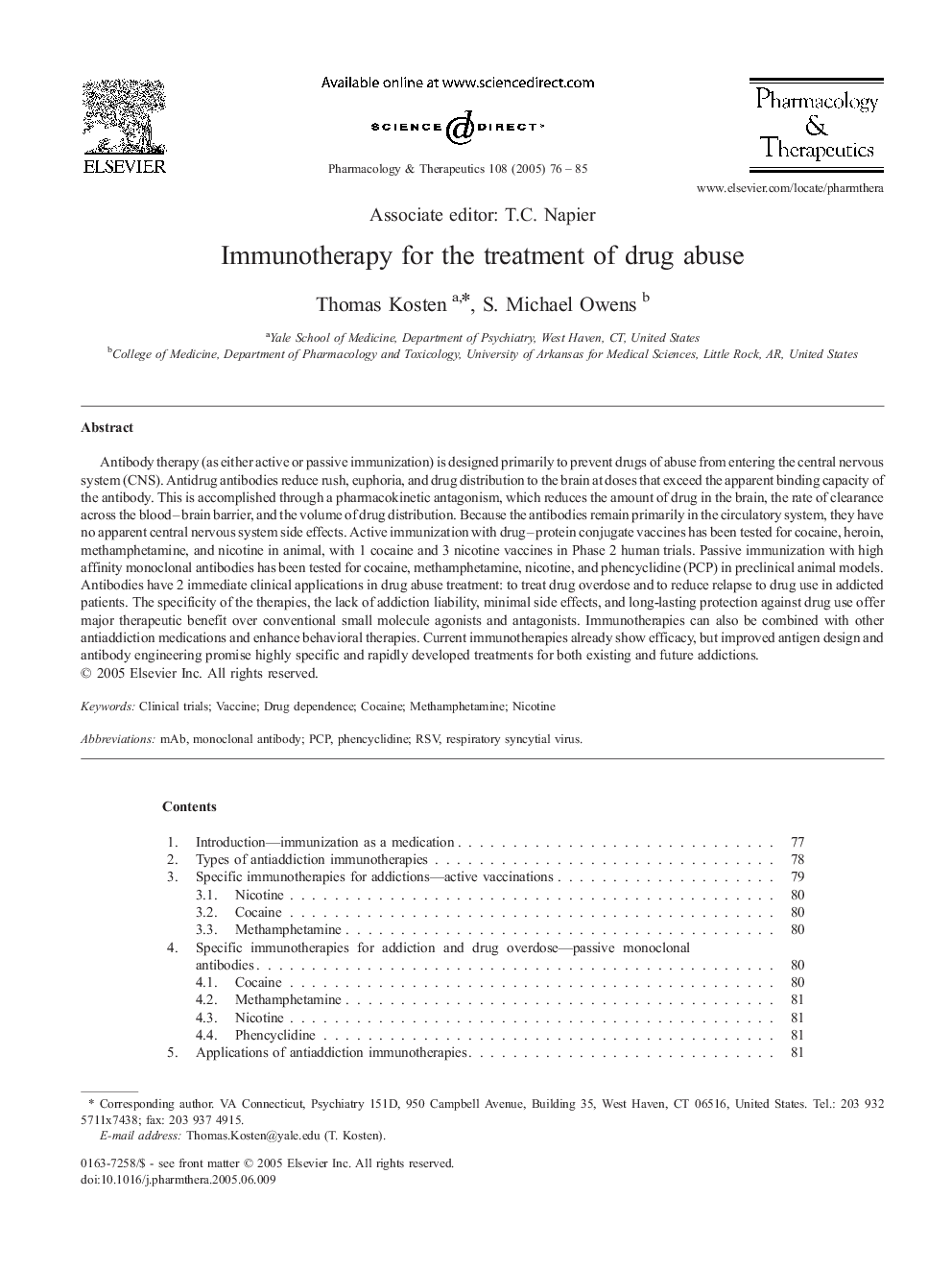| کد مقاله | کد نشریه | سال انتشار | مقاله انگلیسی | نسخه تمام متن |
|---|---|---|---|---|
| 9016124 | 1127657 | 2005 | 10 صفحه PDF | دانلود رایگان |
عنوان انگلیسی مقاله ISI
Immunotherapy for the treatment of drug abuse
دانلود مقاله + سفارش ترجمه
دانلود مقاله ISI انگلیسی
رایگان برای ایرانیان
کلمات کلیدی
موضوعات مرتبط
علوم پزشکی و سلامت
داروسازی، سم شناسی و علوم دارویی
داروشناسی
پیش نمایش صفحه اول مقاله

چکیده انگلیسی
Antibody therapy (as either active or passive immunization) is designed primarily to prevent drugs of abuse from entering the central nervous system (CNS). Antidrug antibodies reduce rush, euphoria, and drug distribution to the brain at doses that exceed the apparent binding capacity of the antibody. This is accomplished through a pharmacokinetic antagonism, which reduces the amount of drug in the brain, the rate of clearance across the blood-brain barrier, and the volume of drug distribution. Because the antibodies remain primarily in the circulatory system, they have no apparent central nervous system side effects. Active immunization with drug-protein conjugate vaccines has been tested for cocaine, heroin, methamphetamine, and nicotine in animal, with 1 cocaine and 3 nicotine vaccines in Phase 2 human trials. Passive immunization with high affinity monoclonal antibodies has been tested for cocaine, methamphetamine, nicotine, and phencyclidine (PCP) in preclinical animal models. Antibodies have 2 immediate clinical applications in drug abuse treatment: to treat drug overdose and to reduce relapse to drug use in addicted patients. The specificity of the therapies, the lack of addiction liability, minimal side effects, and long-lasting protection against drug use offer major therapeutic benefit over conventional small molecule agonists and antagonists. Immunotherapies can also be combined with other antiaddiction medications and enhance behavioral therapies. Current immunotherapies already show efficacy, but improved antigen design and antibody engineering promise highly specific and rapidly developed treatments for both existing and future addictions.
ناشر
Database: Elsevier - ScienceDirect (ساینس دایرکت)
Journal: Pharmacology & Therapeutics - Volume 108, Issue 1, October 2005, Pages 76-85
Journal: Pharmacology & Therapeutics - Volume 108, Issue 1, October 2005, Pages 76-85
نویسندگان
Thomas Kosten, S. Michael Owens,